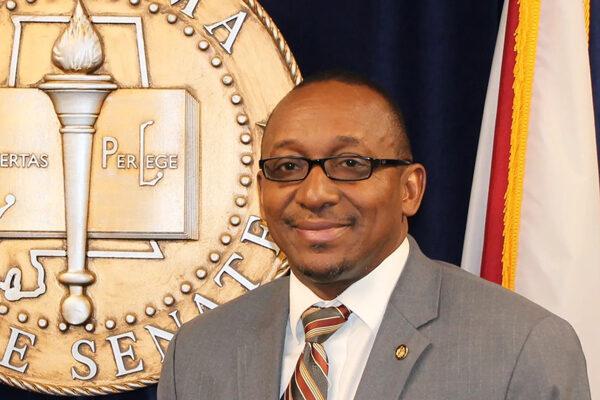On Tuesday, the Alabama Senate and the House gaveled in for the 2023 regular session, only to schedule a recess for two weeks for a special session to address the allocation of American Rescue Plan Act (ARPA) funds. Gov. Kay Ivey called the special session on a Tuesday night state of the state address.
According to State Senate Minority Leader Bobby Singleton (D-Greensboro), Democrats in the legislature are preparing to go on the defensive against bills coming from freshmen members that may run afoul of the Democratic Caucus.
“Me and my caucus are probably going to be sitting back, playing more defense than we are going to be doing offense,” Singleton said. “You’ve got 34 new members that are down in the House who all ran on changing the world. We think we’re going to see some bad legislation, and we just going to be ready to fight whatever comes up. But we’re also going to be ready to promote what’s best for Alabama and to be a part of those economic developments.”
This year, a school choice bill known as the Parental Rights in Children's Education (PRICE) Act is in the works, although it has yet to be filed.
State Sen. Larry Stutts (R-Tuscumbia) is carrying the bill in the Senate, and State Rep. Ernie Yarbrough (R-Trinity) will carry it in the House. The PRICE act is similar to a 2022 school choice bill, with some key differences.
According to Singleton, any school choice legislation must be deliberated based on how it affects rural areas.
“When you talk about school choice, the question is school choice for who?” Singleton said. “When you look at rural areas that I live in, there may not be no choice. So, we [are] just going to have to deal with that as it comes down the line.”
Singleton also expressed a desire to fund the state’s lowest-performing schools further, and change how school progress is measured in Alabama schools under state law.
State Rep. A.J. McCampbell (D-Demopolis) has introduced legislation to change Alabama's "failing school" definition, which critics believe harms students and staff.
The Alabama Accountability Act (AAA) of 2013 requires the Alabama State Department of Education to list schools as "failing" if they rank in the worst 6% of all public schools in scholastic achievement.
According to Singleton, the rating system needs to be changed because when schools are graded by percentages, there will always be schools in the bottom 6%.
“We really need to get away [from] that bottom 6%,” Singleton said. “…When you do it on a percentage basis, somebody’s percentage is going to be lower, so you’re always going to have a bottom 6%. Even if I make a B, I’m going to be in the bottom 6%. And so, it’s going to say that I failed. What about my progress? So we got to start looking at how we measure progress and how do we be positive about education and be able to promote education in a positive sense than in a negative sense in this state.”
To connect with the author of this story or to comment, email craig.monger@1819news.com.
Don't miss out! Subscribe to our newsletter and get our top stories every weekday morning.










